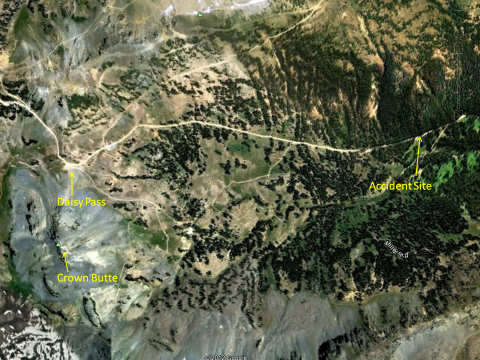
|
Cooke City, 2012-02-23 A snowmobier was caught and killed while riding on the road leading to Daisy Pass. The avalanche came down the slope above the words "Accident Site". The Pass is located up the road to the left. The slide that buried the rider likely released naturally, catching him as he attempted to turn around at the bottom of the path. Three other riders were also partially buried, two with just their arms sticking out of the snow. The three riders that were partially buried escaped unharmed. Photo GNFAC
|

|
Northern Gallatin, 2012-02-22 A thin layer of small grained facets were producing signs of instability and unstable results in the Flanders drainage up Hyalite. This layer was most present on slopes above 9,000 ft. Photo GNFAC
|
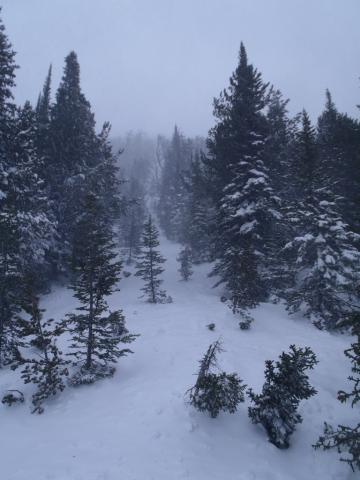
|
Cooke City, 2012-02-22 Looking up the path of the avalanche that killed a snowmobiler today (Feb 22, 2012). The accident happened immediately off the Miller road towards Daisy Pass outside Cooke City. The slide occurred as he turned his sled around at the road's edge. He was not on a steep slope, nor was the avalanche path obvious. The slide buried and killed the rider. He was dug up quickly but did not survive. Two other riders was partially buried, but uninjured, with arms sticking out of the snow, and a fourth was buried up to his knees. Three machines were completely buried. Photo: B. Zavora
|
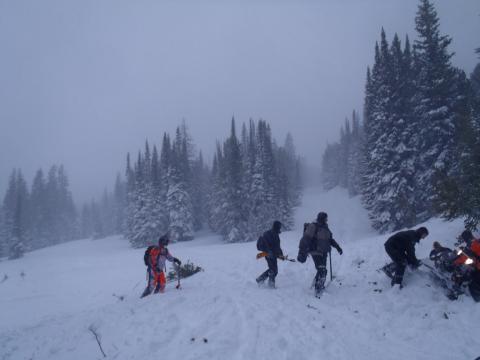
|
Cooke City, 2012-02-22 The avalanche debris hit the road heading up to Daisy Pass. The avalanche was triggered by a snowmobiler a short distance off the road, but released far above. Photo: B. Zavora
|

|
Northern Gallatin, 2012-02-21 A skier triggered two small slides near Divide Peak up Hyalite. The snow is breaking on a layer of near surface facets under the new snow. This layer is widespread throughout southwest Montana and will become more reactive as more snow falls. Photo: B. VandenBos
|

|
Northern Madison, 2012-02-20 This avalanche happened yesterday and was triggered by a skier in between the two crown faces seen in this photo. This 40 degree, southwest facing slope broke 1 foot deep, 500 feet wide and ran 300 vertical feet. It failed on near surface facets that were formed during last week's clear weather. Photo: GNFAC
|

|
Northern Madison, 2012-02-20 Avalanche failed on near surface facets, propagated 500 feet wide. Photo: GNFAC
|

|
Cooke City, 2012-02-20 A weak interface between the new storm snow and the old snow surface is producing both natural and human triggered avalanches in the mountains around Cook City. Photo Beau Fredlund
|
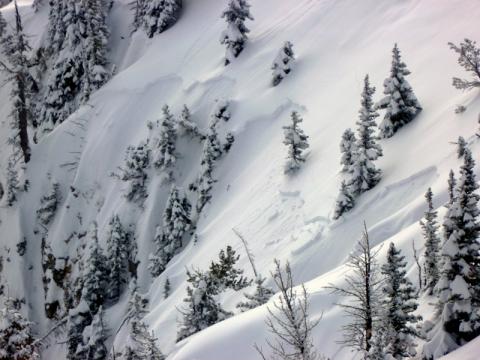
|
Bridger Range, 2012-02-19 8 inches of new snow was producing soft slab avalanches in the Bridger Ragne. This slide occurred in the ski area and was likely caused by control work. Photo GNFAC
|
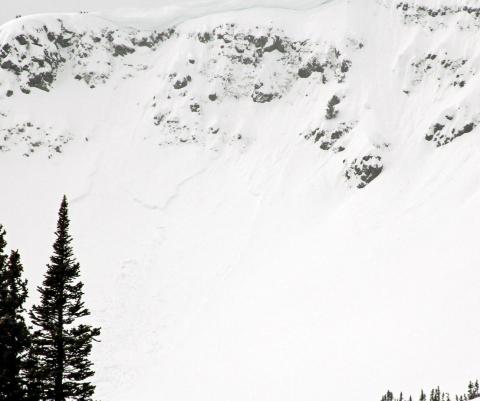
|
Northern Gallatin, 2012-02-18 New snow and wind are producing natural and human triggered avalanches in the northern Gallatin Range. Photo Nick Stayner
|

|
Southern Madison, 2012-02-18 This slide occurred near Cabin Creek in the southern Madison Ragne. Although small in size, the debris piled deep in the gully below. Even small slides can be dangerous, especially when associated with terrain traps. Photo Will Shoutis
|

|
Southern Madison, 2012-02-17 A layer of small grained facets buried 2 feet deep were propagating during stability tests. We found this layer in two different pits, E and NE aspects, and it produced unstable results in both locations. It took hard force to get this layer to fail, but the fact it was consistently propagating makes it untrustworthy. Photo GNFAC
|

|
Bridger Range, 2012-02-16 Heavy wind loading was observed on Saddle Peak in the Bridger Range today. The skiers who took this photo "experienced" many small slab avalanches. Photo: D. Hebert
|

|
Northern Gallatin, 2012-02-16 This avalanche was triggered when a skier walked onto this slope. His tracks are just out of view to the right of the photo. Photo: Ben VandenBos
|

|
Northern Gallatin, 2012-02-16 Increased winds formed wind slabs that produced avalanches in Hyalite Canyon. Most were about this size and occurring just under ridgetops. Many occurred on S-aspects. Photo: B. VandenBos
|
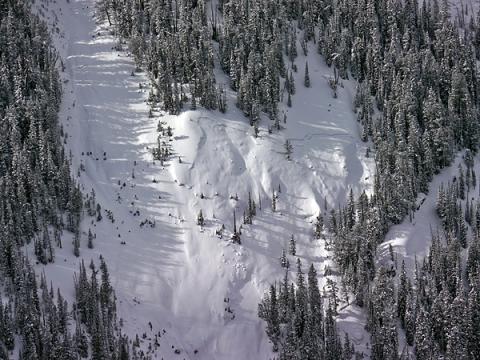
|
Cooke City, 2012-02-15 This east facing natural avalache slid for its second time this winter. Photo: B. Fredlund
|

|
Cooke City, 2012-02-15 This east-facing natural avalanche occured on Valentine's day. It's the second time the slope has slid. photo: B. Fredlund
|
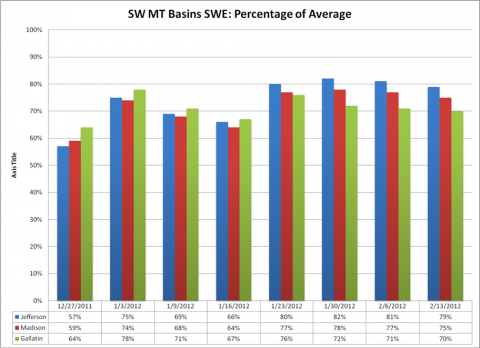
|
, 2012-02-13
|
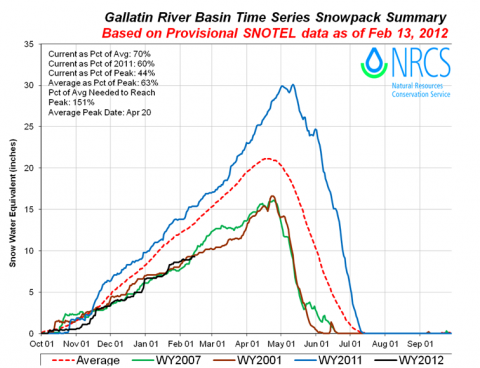
|
, 2012-02-13
|

|
Cooke City, 2012-02-12 Over a foot of fresh snow is producing natural and human triggered avalanches in the mountains around Cooke City. This avalnache occurred on a SE facing slope around 9500 ft and was remotely triggerd, an obvious sign of unstable conditions. The track in the upper left is a goat track, not a crown. Photo Beau Fredlund
|